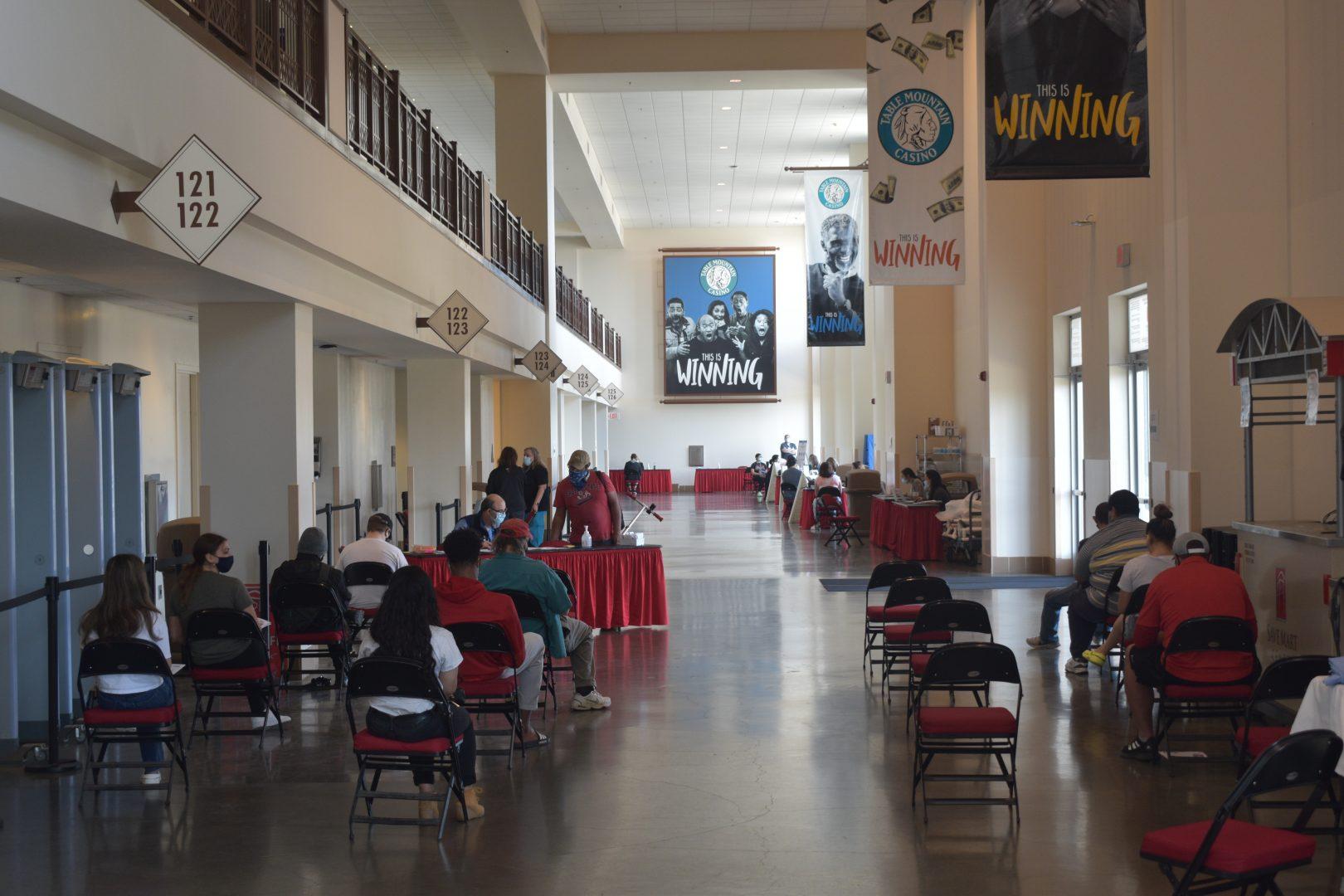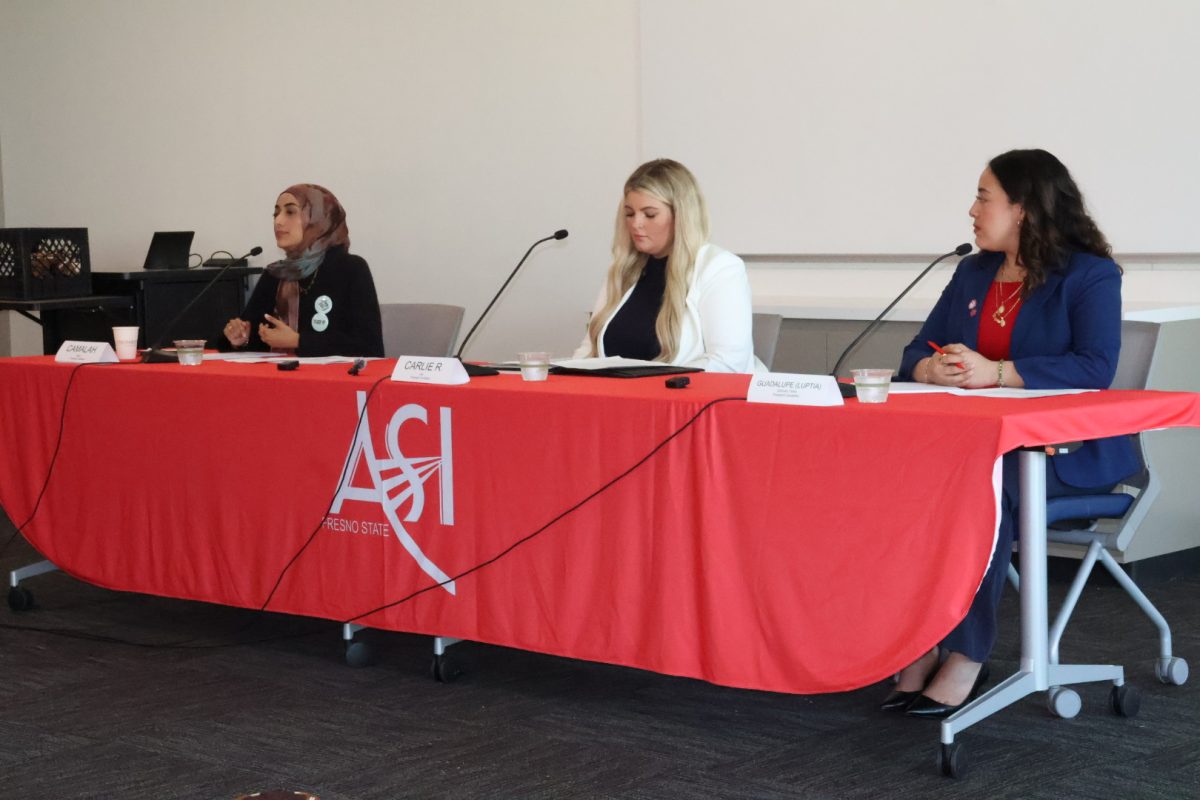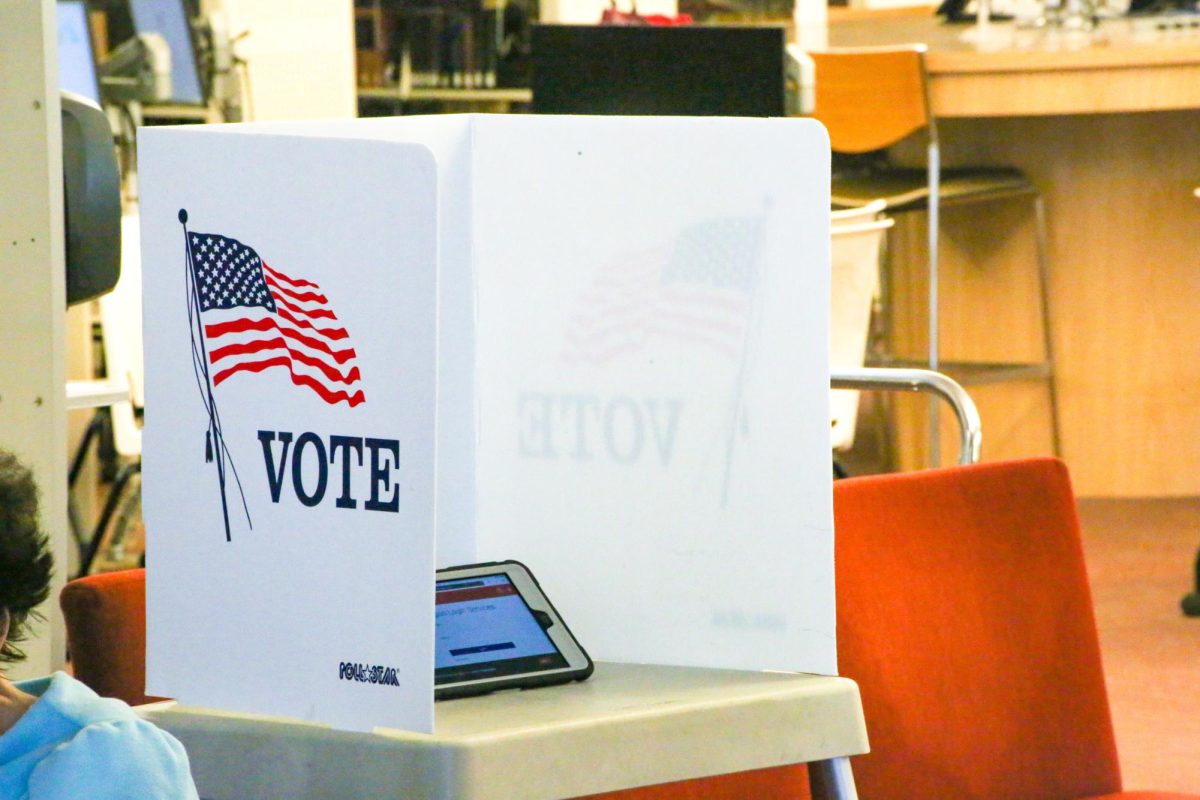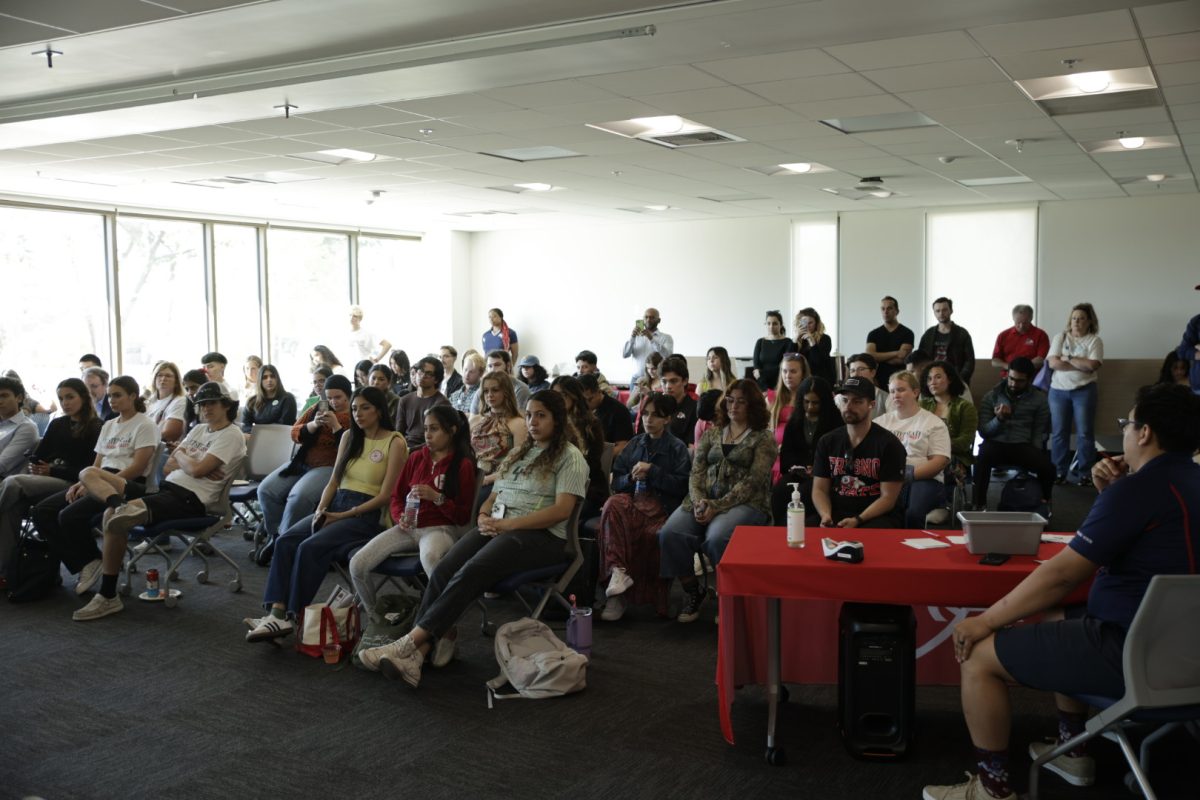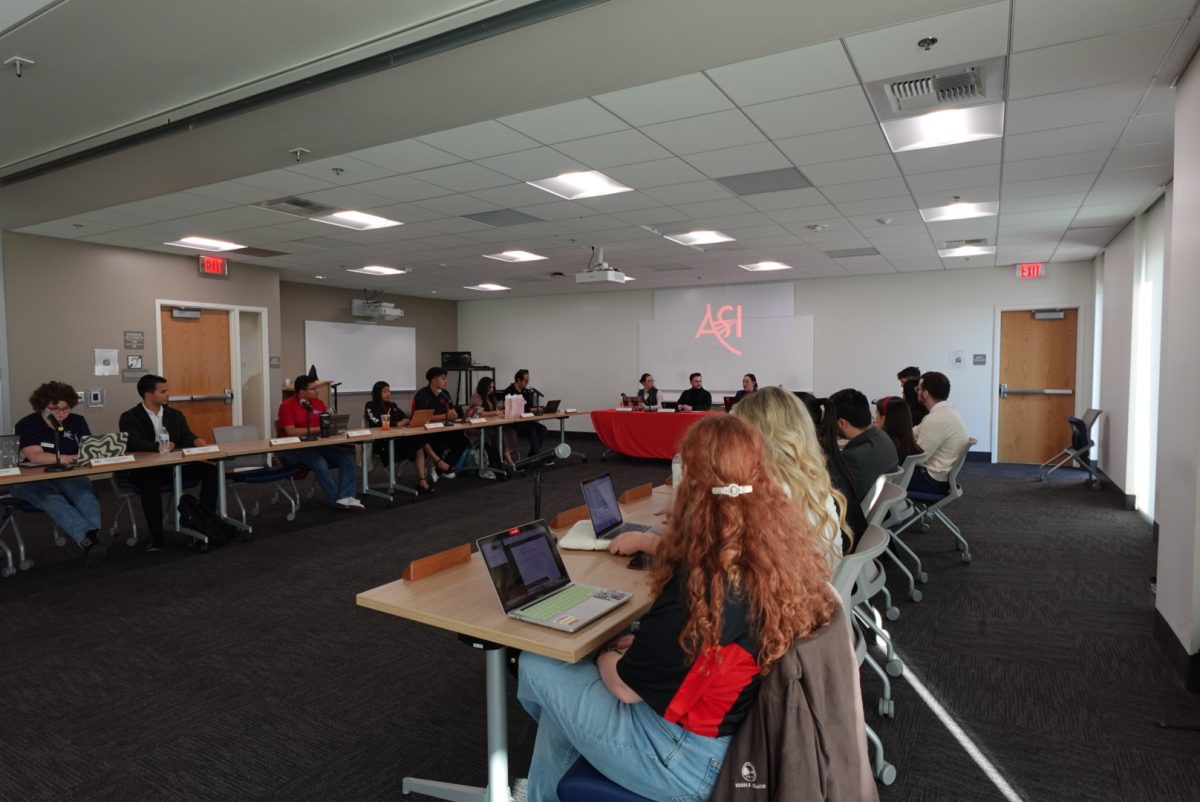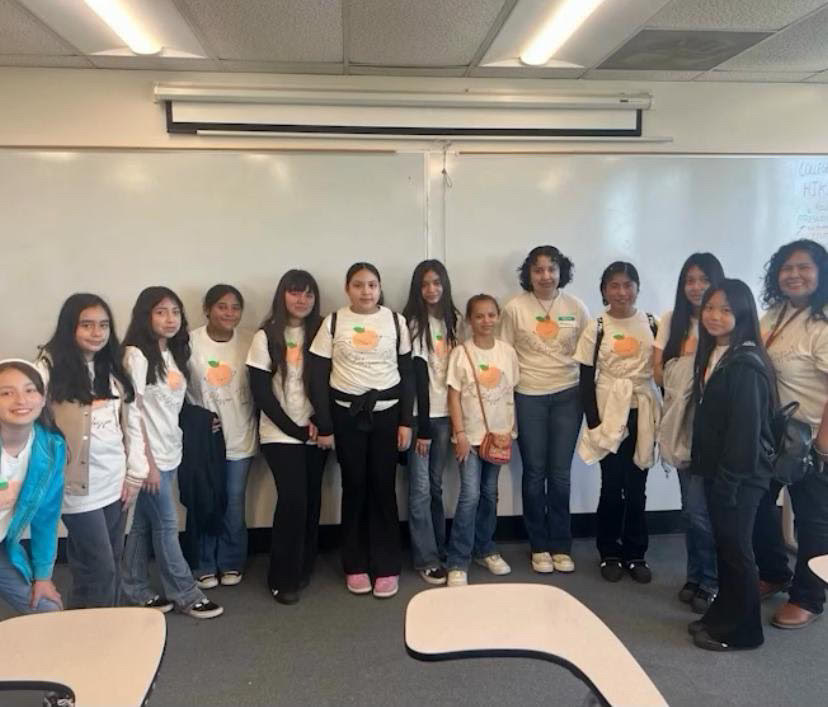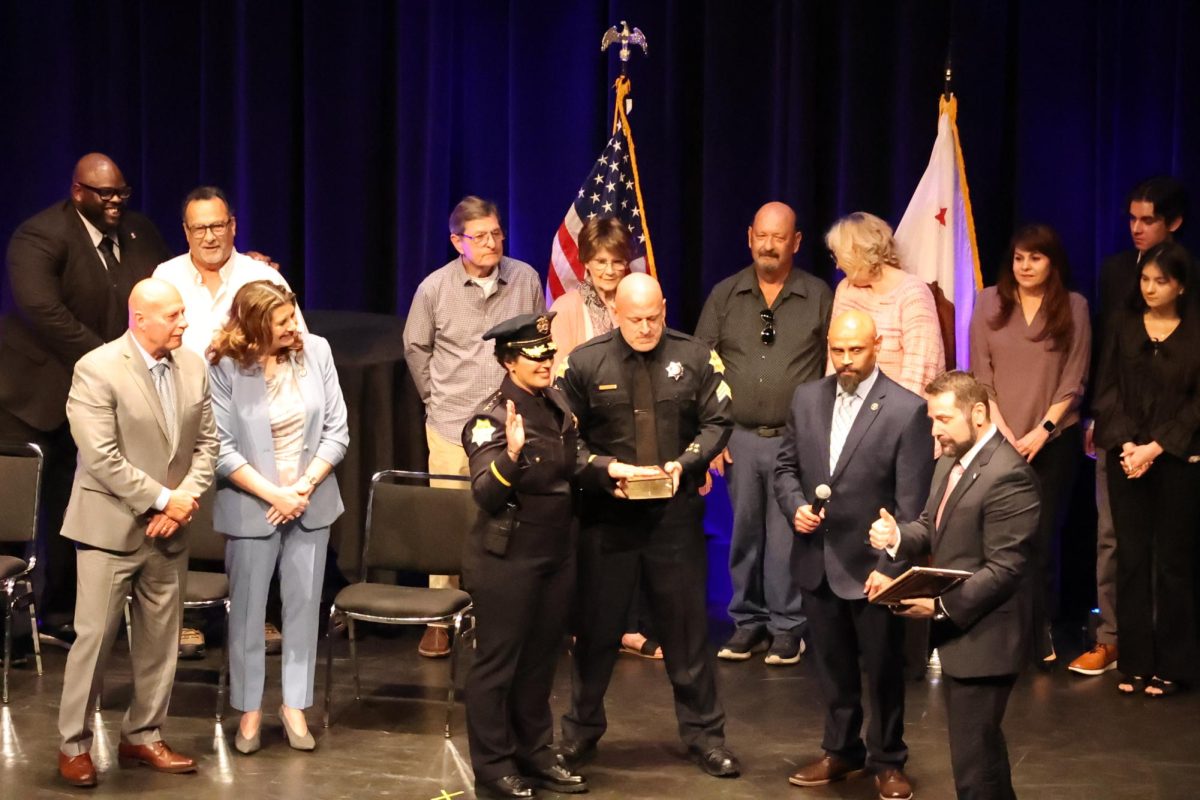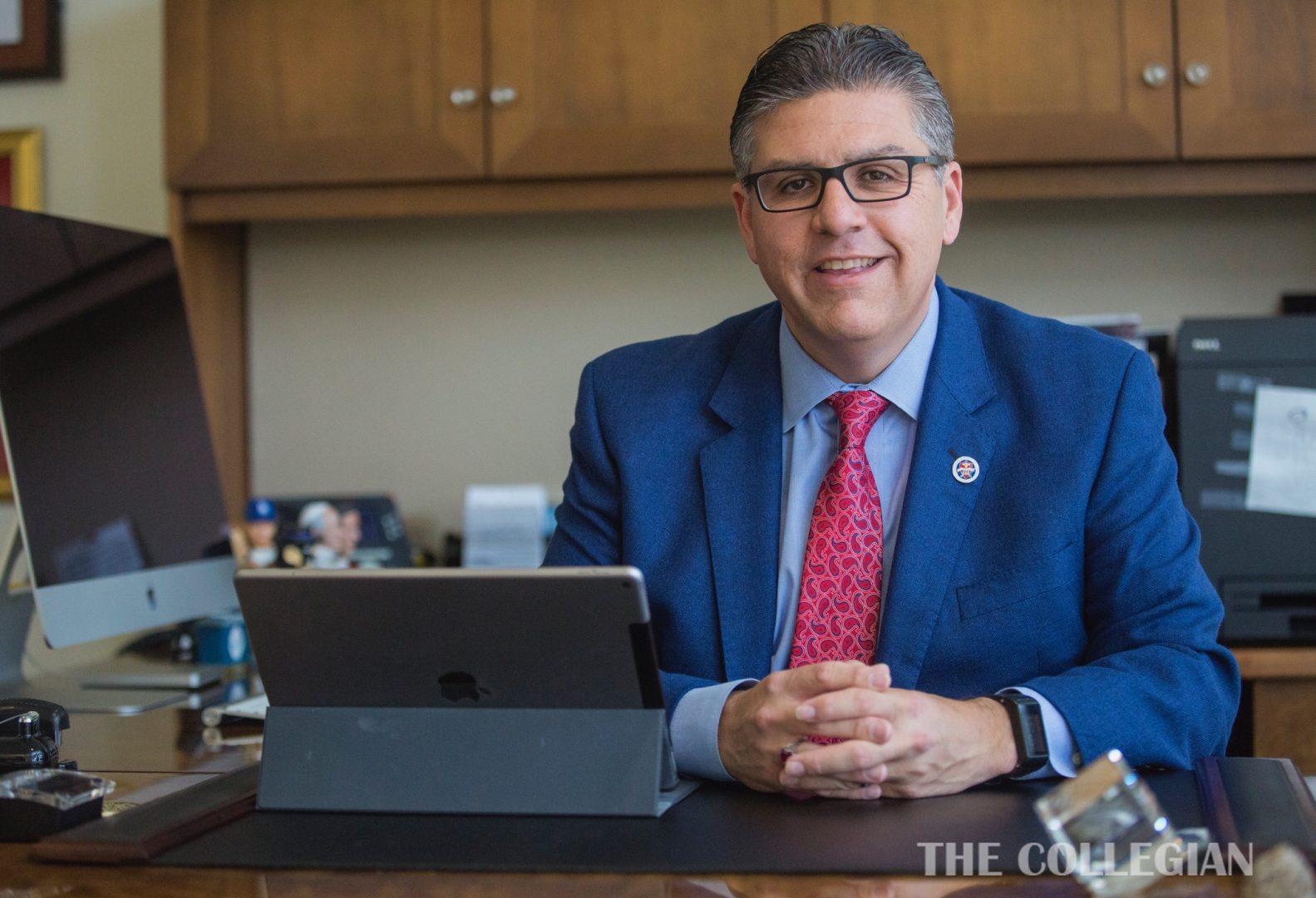COVID-19 cases and hospitalizations are on the rise. New variants are circulating, and a new vaccine is now available.
The new vaccine is available with a Pfizer-BioNTech, Moderna, or Novavax option to protect against serious illness from COVID-19. It is accessible at local pharmacies and health clinics. It is not available on campus.
Fresno State has not implemented a new vaccine requirement other than the original COVID-19 and booster vaccinations, which do not protect against the new variants. As of April 18, the original Pfizer-BioNTech and Moderna COVID-19 vaccines are no longer available for use in the United States, according to the Centers for Disease Control.
The Fresno State COVID-19 Updates website has not been updated since April 2023, and there is no mention of the new vaccine or its availability. Fresno State’s COVID-19 pages do not include any time stamps in terms of updates, so it is difficult to tell if and when information is current. Some of the pages link to a California State University website (“COVID-19 Vaccinations and Other Safety Measures”) that was last updated in April; the page promises an update for Oct. 11 but as of Oct. 27 does not provide one.
Lisa Bell, public information officer for University Communications, said the exposure website, which tracks COVID-19 cases, is frequently updated, but students are required to seek further information on city and statewide websites.
“The COVID-19 site has never had specific information about variants because we partner closely with the Fresno County Department of Health, CDPH and Centers for Disease Control and Prevention to provide additional guidance for our campus community,” Bell told The Collegian.
With the seasonal Flu upcoming, Fresno State staff members encourage students to take precautions to remain healthy against COVID-19 as well.
Laura Kay Vicars-Busby, a family nurse practitioner at Fresno State, advises students who feel sick to not attend classes and to social distance.
“As the number of infections increase, how well everyone takes precautions to stay healthy can help,” Vicars-Busby said.
In order to prevent the spread of the COVID-19 variants, the same precautions are recommended such as mask-wearing, social distancing and washing hands. Older individuals and individuals with autoimmune deficiencies are still most at risk for more severe cases.
In April 2023, the California State University system recommended students who plan on participating in in-person learning and activities get the COVID-19 and booster vaccines.
Currently, students and staff who test positive are still required to file a COVID-19 report. The Isolation and Quarantine Guidance website provides more information about positive test results.
New variants of COVID-19 are quickly arising: Omicron, Eris and Pirola.
The original booster shots were updated to tackle the Omicron variant and not the newer variants.
“No vaccine is 100% effective but we know that if a vaccinated person gets COVID it may not be as serious illness and the chance of developing long COVID is reduced,” Vicars-Busby said.
The variants of Omicron have become widespread due to their change in protein spikes allowing them to infiltrate human cells more effectively. The precautions to prevent the spread of COVID-19 remain the same.
Some students have expressed worry that the upcoming flu season will exacerbate the spread of the variants of the disease.
“I think the school should focus a lot on students’ health and not enforce but encourage policies such as mask wearing,” said Alex Aguilar, a student at Fresno State.
Other students are not particularly concerned.
“I am not too worried about COVID,” said Takanao Toyoyama, another Fresno State student.
Higher Education Emergency Relief Fund (HEERF) has discontinued their funding to higher education institutions further limiting the supply of COVID Rapid Antigen Test Kits.
However, students will still be able to obtain home test kits from the Student Health and Counseling Center once the funding ends.
“Unfortunately, for all higher education institutions, HEERF funds are no longer available and we have a very small supply of test kits remaining. Once our current inventory is finished, students will be able to continue to obtain free kits from the Student Health and Counseling Center,” Debbie Adishian-Astone, vice president for administration and chief financial officer said in a campuswide email from University Communications.
The Fresno County Department of Public Health, is offering free COVID-19 testing at these locations.
Flu shots are available at the student health center, but only for students.
“We regret that we were not able to identify a resource for any flu shot clinics for employees, but please consult your healthcare provider,” Adishian-Astone said.
The university is currently working towards bringing the COVID-19 vaccinations to campus.
“The Student Health and Counseling Center does not have the newest vaccine yet, however, we have put in a request to Fresno County and are waiting to hear back if we will be able to acquire or partner with the health department to support a COVID vaccination clinic for our students,” Bell said.
Update: This story and headline was updated at 5 p.m. Oct. 27 to reflect more information on the new vaccine and outdated information on the California State University COVID-19 website.




